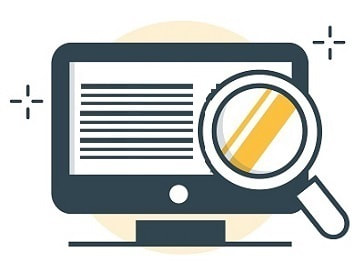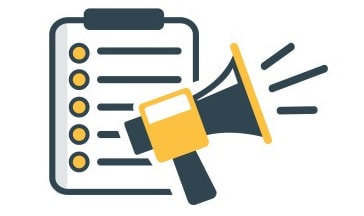How to Get a Refund, Repair or Replacement
Our definitive guide outlines your consumer rights when you purchase a faulty item or unsatisfactory service
Updated 21 July 2021
Finding a fault in an item you recently purchased or having a bad experience with services you purchased can be extremely frustrating. One of the first thoughts to cross your mind will probably be “can I get a refund for this?”
We often hear from MoneyHub users who encounter these situations and want to know what their options are. We have put together this guide to help you understand your rights as a consumer and to navigate the process of requesting a refund, repair or replacement. We have also created seven templates to help you get your money back.
In this guide, we cover:
Before you read this guide:
Finding a fault in an item you recently purchased or having a bad experience with services you purchased can be extremely frustrating. One of the first thoughts to cross your mind will probably be “can I get a refund for this?”
We often hear from MoneyHub users who encounter these situations and want to know what their options are. We have put together this guide to help you understand your rights as a consumer and to navigate the process of requesting a refund, repair or replacement. We have also created seven templates to help you get your money back.
In this guide, we cover:
- Four Must-Know Tips
- Consumer Law and Your Rights – A Three Step Process to Work out Whether You Have a Claim
- What Should I Know about the Various Remedies?
- Take Action – Three Tips to Know Before Asking for a Refund
- Seven Templates to Help You Request That Refund in Minutes
- Frequently Asked Questions
- Concluding Remarks
Before you read this guide:
- We have a specific guide to credit and debit card chargebacks here . If you are disputing a charge on your card that you’ve paid to a third party (e.g. online store), you may be able to get this money refunded to the card you paid with.
- So many New Zealanders have been slapped with unjustifiably expensive parking tickets that we wrote a guide to exercising your rights as a customer of private car parking. Read how to fight rip off tickets here.
MoneyHub's Founder, Christopher Walsh, shares his comments:
|
Four Must-Know Tips
Before you do anything, know these facts:
- A “strictly no refund” policy has no teeth. If the product or service you were provided with has a major problem, you will always be entitled to a remedy regardless of a seller’s refund policy. Businesses are not allowed to create their own refund policies in substitute of the law.
- Do not take faulty products to a third-party for fixing before you contact the seller. If you notice a minor defect with the item you purchased, raise the issue with the seller immediately. Going to someone else for repairs before discussing the issue with the seller will cancel your right to a remedy. Unless the seller has agreed to foot the repair bill, you will have to pay the third-party out of your own pocket.
- Do not buy anything that you know is defective. Buying a product after you have been made aware of its faults implies that you have acknowledged the defects and are willing to accept it. You cannot later claim any remedies under the Consumer Guarantees Act (CGA) because of any defects that were you were told about before you purchased the item.
- Always keep evidence of your purchase. This is especially the case for more expensive purchases. We suggest storing receipts somewhere safe, and taking a photo of physical receipts so you have a digital copy too.
Consumer Law and Your Rights – A Three Step Process to Work out Whether You Have a Claim
By the process of elimination, you can easily find out your legal rights by answering these three questions:
1. Does consumer law cover my purchasing situation?
The Consumer Guarantees Act (CGA) sets out your rights as a consumer, whether you purchase goods or services. The CGA only applies to products or services that are bought for personal or household use from a business. The CGA (and this guide) does not cover:
2. Do I have a case against the seller because of a good or service I purchased?
By law, any goods or services that you buy must meet certain standards. If a seller provides you with goods or services that do not meet any one of these standards, the seller may be required to fix any problems you experience.
Goods
Any item you purchase should:
Services
Any services that you pay for should:
3. Which remedy can I get?
If you have a case against the seller, the next step is to identify what your options are. Generally, a seller will provide you with a refund, repair or a replacement. These solutions are called “remedies”, as they are meant to fix your dissatisfaction with a faulty good or service. Which remedy you are entitled to depends on the severity of the problem.
Is it a major or a minor problem?
To help you figure this out, some questions to consider when determining whether the issue is a major or a minor one are:
Minor problem
If there is a minor problem, the seller can offer you a repair, replacement or a refund. Which remedy you are offered is up to the seller. So, if the seller offers you a replacement but you want a refund instead, the seller does not have to give you a refund. It is important to remember that you are entitled to a remedy, even if the problem is minor.
Major problem
The tables turn if there is a major problem, in which case you have the right to choose the remedy. Where there is a major problem, the best choice would be either a full refund or a replacement. If you ask the seller to repair a damaged item, be prepared to wait days or even weeks before you receive the fixed item.
An example of a major problem would be a TV that does not turn on, or an electric kettle that does not get hot enough to boil water.
1. Does consumer law cover my purchasing situation?
The Consumer Guarantees Act (CGA) sets out your rights as a consumer, whether you purchase goods or services. The CGA only applies to products or services that are bought for personal or household use from a business. The CGA (and this guide) does not cover:
- Any products or services you purchase for your business: If both the buyer and seller are businesses, the Contract and Commercial Law Act applies instead of the CGA.
- Private sales: These are usually purchases made from sellers who do not have a business involving sale of goods and services. For example, buying a suitcase from your neighbour’s garage sale or from someone on Trade Me who occasionally uses the platform to sell unwanted items. Some marketplaces have consumer protection policies to resolve disputes arising from private sales (e.g. Trade Me lists scenarios in which you are protected under its Buyer Protection Policy).
- Real estate sales
2. Do I have a case against the seller because of a good or service I purchased?
By law, any goods or services that you buy must meet certain standards. If a seller provides you with goods or services that do not meet any one of these standards, the seller may be required to fix any problems you experience.
Goods
Any item you purchase should:
- Do what it is meant to do.
- Match its description. The product should look and function as it states on the packaging, and on advertisements. If you were shown a sample or a model before purchase, the item you purchased should be practically identical.
- Be in good condition. This means that the item is free of any defects and is safe to use. This also applies to items that have been delivered by post or courier, so you may have a claim if your item was damaged during delivery. If you buy something secondhand, “good condition” may mean something different to buying a new item.
- Last a reasonable amount of time. A product you bought should not break within a few days of purchase. How long is reasonable depends on the item and the circumstances of purchase. A washing machine would probably be expected to last longer than an electric toothbrush, and a new lawnmower would be expected to last longer than a secondhand one.
- Arrive on time.
- Fit the purpose that you told the seller about.
Services
Any services that you pay for should:
- Be carried out with reasonable care and skill.
- Be completed within a reasonable time.
- Be priced reasonably. This only applies if the price has not been agreed in advance (e.g. shown on a price tag, at the checkout or on a quote) and you have not paid yet.
- Fit the purpose that you told the seller about. For example, you paid a company to install blackout curtains in your dark room and you specifically asked for the curtains to block out all light. After installation, you discover that the curtains do let light through.
3. Which remedy can I get?
If you have a case against the seller, the next step is to identify what your options are. Generally, a seller will provide you with a refund, repair or a replacement. These solutions are called “remedies”, as they are meant to fix your dissatisfaction with a faulty good or service. Which remedy you are entitled to depends on the severity of the problem.
Is it a major or a minor problem?
To help you figure this out, some questions to consider when determining whether the issue is a major or a minor one are:
- How often has the problem occurred? If it has happened several times already, it is more likely to be a major problem. A series of minor problems can add up to become a major problem
- Would a regular person have bought the item if they had known about the problem beforehand? If the answer is "no", it is more likely a major problem
- Can it be fixed relatively easily? If so, it is more likely a minor problem
- If the product or service is different from what was described, how much different is it? If the difference is significant, it is more likely a major problem
- Is the product unsafe? If so, it is more likely a major problem
Minor problem
If there is a minor problem, the seller can offer you a repair, replacement or a refund. Which remedy you are offered is up to the seller. So, if the seller offers you a replacement but you want a refund instead, the seller does not have to give you a refund. It is important to remember that you are entitled to a remedy, even if the problem is minor.
Major problem
The tables turn if there is a major problem, in which case you have the right to choose the remedy. Where there is a major problem, the best choice would be either a full refund or a replacement. If you ask the seller to repair a damaged item, be prepared to wait days or even weeks before you receive the fixed item.
An example of a major problem would be a TV that does not turn on, or an electric kettle that does not get hot enough to boil water.
What Should I Know about the Various Remedies?
We outline the options you have, from repair to claiming for losses:
1. Repair
2. Refund
3. Replacement
4. Consequential loss
1. Repair
- If a seller offers to repair minor defects, the seller will either fix it themselves or pay for someone else to fix it. They may offer you a replacement in the meantime.
- The seller must conduct repairs within a reasonable period. What is “reasonable” is how long it would take another seller to sort your repair.
- If the seller refuses to fix the problem or the repairs are taking longer than a reasonable time, you can ask someone else to repair your item and then claim these repair costs from the seller.
2. Refund
- If you want to claim a refund, you are only entitled to a refund of the price you paid for it. You can’t ask for a refund of the regular retail price if you bought an item on sale, so if you paid $49.99 for a pair of jeans that is usually $69.99, the maximum refund you could receive is $49.99.
- You will receive your refund via the method you used to pay. For example, you will be given cash if you paid in cash.
3. Replacement
- If you are offered a replacement item that costs more than the original item you purchased, you will have to pay the difference in price.
4. Consequential loss
- The seller must cover all foreseeable additional costs caused by the issue.
- Let’s say you asked for a full refund because the fridge you bought was faulty. You could ask the seller to pay for any food that spoiled as a result of the fridge not working. If you paid for a technician to help you identify the issue, you could recoup this cost from the seller too.
- However, if you chose to purchase takeaways because your fridge was not working, you cannot claim these costs from the seller. This is because it was your decision to order takeaways – the faulty fridge didn’t cause you to do this.
Take Action – Three Tips to Know Before Asking for a Refund
By this stage, it's likely you are confident that you have a claim against the seller, and you want to exercise your consumer rights. The final step is taking action.
Three key tips before you write that refund request:
Three key tips before you write that refund request:
- If you discover a problem, you should notify the seller as soon as possible. If there is an issue with the goods or services that you purchased, you must notify the seller within a reasonable time frame. For example, you have a weak case against the seller if you wait two years after discovering a faulty plug on your iron before bringing a claim. What is reasonable depends on factors such as what type of good or service it is, how long a similar good or service would last for, and how often you have used the good or service.
- Evidence is key. Make sure you have proof of purchase – the best form would be a receipt or invoice, but a bank statement may work too. You also want evidence that shows what the problem is. In most cases, sending the faulty item back to the seller or bringing it in store to show them will be enough. We also suggest taking photos and videos of the problem in case the issue is not clear to the seller, or the issue somehow disappears right when you show the seller.
- Be polite and considerate when communicating with the seller. Especially at large retailers, the person who handles your refund request would have had nothing to do with the fault. Your problem is with the product or service, not the person with a customer representative role. You are more likely to achieve a better result if you are courteous and you take a problem-solving approach, rather than a critical approach.
Seven Templates to Help You Request That Refund in Minutes
Many New Zealanders often tell us that they would love to get a refund or replacement, but they have no idea how to go about writing that email or navigating that phone call. To help solve this problem, we have put together seven templates to make this easy for you. The process should take less than five minutes with our easy-to-use resources.
Download our templates for the following purposes:
We have included paragraphs to help you in case:
To use the templates, select the best one for your situation. Then, replace any text in [red square brackets] with the necessary details. We have used (blue italics) for instructions to guide you through using the template – remember to delete these instructions before you hit “send”.
Download our templates for the following purposes:
- If you want a refund or replacement for a faulty product
- If you want your faulty item repaired
- If you bought the item for a specific purpose
- If the item you bought did not match the description or what a sales assistant told you
- If the item you bought was damaged in the post
- If the item you purchased was meant to be delivered but did not arrive at all
- If the item you purchased was delivered late
We have included paragraphs to help you in case:
- The faulty item you bought has damaged something else you own
- You have had to pay for certain things because of the faulty item
- There is a warranty attached to the faulty item
To use the templates, select the best one for your situation. Then, replace any text in [red square brackets] with the necessary details. We have used (blue italics) for instructions to guide you through using the template – remember to delete these instructions before you hit “send”.
Frequently Asked Questions
Does the CGA cover faulty items that I bought second-hand?
It depends who you bought the item from and where. The CGA applies to sellers who regularly sell second-hand goods, such as thrift stores or at auctions.
Can I return an item or get a refund if I have changed my mind?
This depends on your seller’s change of mind policy. Under the law, you are not entitled to a refund simply because you have changed your mind. To protect yourself, you should check a seller’s policy on returns or refunds in case you change your mind after making a purchase.
Can I return a piece of clothing that does not fit me?
This depends on the seller’s exchange policy. Deciding that an item does not fit you after you have purchased it is similar to “changing your mind”, which does not give you a right to a refund or replacement. However, if the item does not fit you because it is faulty (e.g. the zip does not work), then you have a right to return the item.
Can I return something I bought on sale?
Yes, if there is a major problem with it. However, it is up to the seller if you want to return an item simply because you changed your mind.
What if I accidentally damage the item?
If you damage the item, whether by accident or on purpose, the seller does not have to repair, replace or refund your purchase. This also applies if you do not follow the seller’s advice, e.g. you do not follow the instruction manual when using your new air fryer, or you insist that your bathroom repairs are done with cheaper material despite your repairer suggesting otherwise. Similarly, if your problem happened because you modified the product somehow, the seller is not required to provide you with a remedy.
What if an accident damages the item after I have purchased it, but the damage is not my fault?
It depends on the nature of the accident. For example, a plumber does not have to give you a remedy if an earthquake damages your plumbing system. However, if you ordered items online and they arrive in damaged condition, you are entitled to a remedy. In this case, the seller will probably investigate why your order was damaged in transit. If the damage had nothing to do with you, you are entitled to ask for a refund or replacement.
Can I get a refund, repair or replacement if I buy online?
Yes, you can. You can enforce your consumer rights regardless of whether you purchased online or in person. Enforcement becomes trickier if the seller is based overseas, so check to see if the seller is New Zealand-based. Your best bet will be to first check the seller’s refund policy and then their dispute resolution process if you are unsatisfied.
If you do buy a faulty product from an overseas buyer, you may be able to ask your bank for a credit card chargeback (explained in our guide here). If you bought the item from an overseas seller via a private sale (e.g. on eBay from a person who only uses the platform occasionally), the CGA will not apply.
If you do buy a faulty product from an overseas buyer, you may be able to ask your bank for a credit card chargeback (explained in our guide here). If you bought the item from an overseas seller via a private sale (e.g. on eBay from a person who only uses the platform occasionally), the CGA will not apply.
What happens if I discover a major problem after the warranty expires?
A seller is responsible for providing goods and services that last a reasonable period. Providing a warranty is not a substitute for fulfilling this responsibility. If the product or service comes with a major problem shortly after the warranty expires, you could claim a remedy. For example, if your lawnmower came with a two-year warranty but broke down after two years and three months, you may be entitled to a remedy. If you have used the lawnmower in an ordinary fashion, it should last well over two years
I bought an item that does not work at all, and the retailer is offering me store credit as a solution. Do I have to accept this?
No. If the item is faulty, the seller must repair, replace or refund you.
I bought a faulty item, and I want to return it. Who pays for postage?
This is a rather murky area, with different sources saying different things. MoneyHub’s understanding is that you will usually cover the costs of returning the item, unless doing so is expensive or complicated (for example, if you would have to arrange for whole furniture set to be sent back). If there is a major problem, the seller will repay the postage and delivery costs. If there is nothing wrong, usually you will pay for postage.
Concluding Remarks
- The everyday person does not often get the opportunity to exercise their rights and take the law into their own hands.
- The good news is that when it comes to purchasing goods and services, the Consumer Guarantees Act gives power to the little guy if the little guy has bought faulty goods or unsatisfactory services.
- Consumers can take action and demand a solution, whether that is a refund, repair, or replacement.
- With the help of MoneyHub’s seven templates and comprehensive guide, understanding and exercising your consumer rights could not be any easier.









